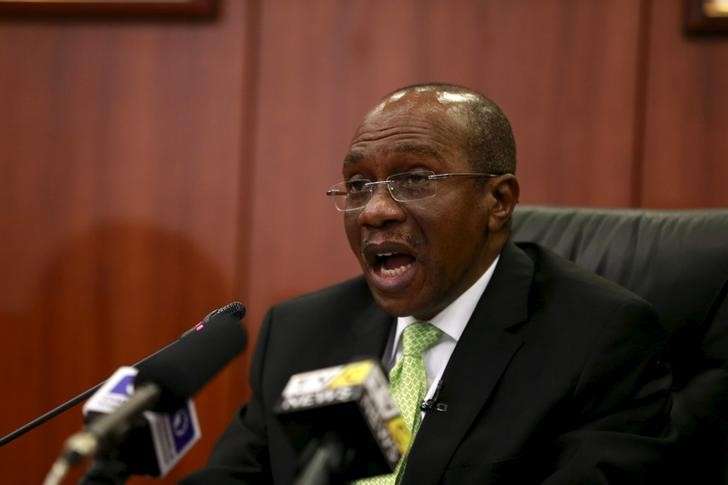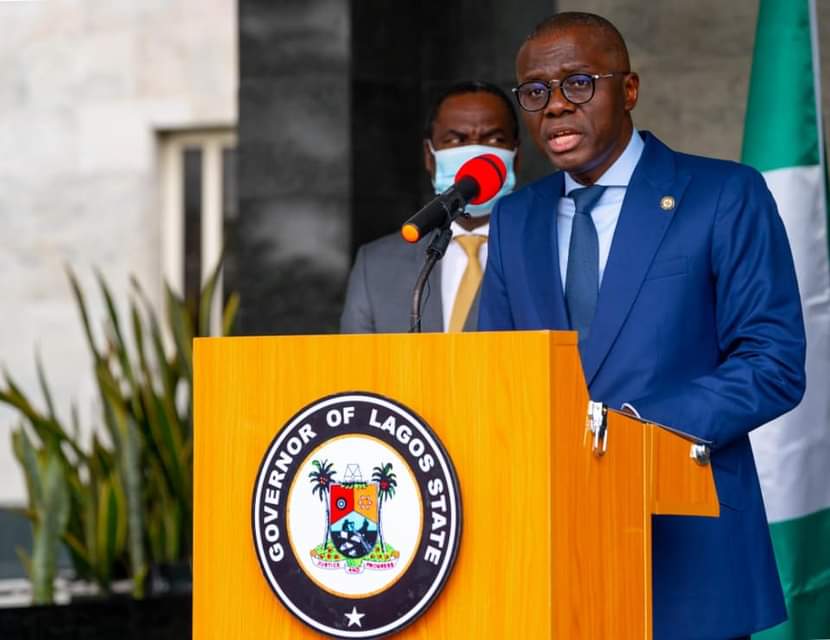Oil
Total pays N5.7billion to 468 staff in one year

ABUJA – Total Nigeria Plc’s employees, totaling 468, received about N5.698 billion as salaries, wages and other benefits in 2013.
This, according to data obtained from the company’s financial statement for the year ended December 31, 2013, is an improvement of N469 million or 8.97 per cent over total staff cost of N5.229 billion recorded in 2012.
The increase in the company’s staff cost is despite a drop in the number of its personnel. Its total personnel dropped by 1.27 per cent to 468 in 2013 from 474 personnel in 2012.
The N5.698 billion paid to its employees in 2013, is an average cost per staff of N12.175 million annually, N1.015 million per month, while average total staff cost is calculated as N474.83 million per month.
A breakdown of its staff cost for 2013 revealed that salaries and wages gulped N5.077 billion; pension and social benefit N386.684 million and staff medical expenses N234.735 million.
The document also gave a breakdown of the company’s personnel as: 105 managerial staff, 338 senior staff and 25 junior staff.
In addition, the report noted that Total Nigeria’s highest paid director received emoluments of N37.464 million in 2013, down by 23.05 per cent from N48.686 million in 2012.
Furthermore, Total paid N91.303 million to its directors as emoluments in the period under review, broken down into: fees for service as directors N1.5 million; other remunerations N89.803 million.
The company’s annual report revealed that the company has 12 directors, with seven of the directors receiving emoluments while five had no emoluments in the year under review.
Also, the company’s total borrowings rose by N1.729 billion or 11.62 per cent to N16.608 billion in 2013, from N14.879 billion in 2012.
Going by its indebtedness, Total Nigeria’s total interest expenses for 2013 stood at N1.98 billion, broken down into: interest on bank overdrafts and loans N1.964 billion, and interest on obligations under finance leases N17.11 million.
In the course of the 2013 financial year, dividends of 3,103 shareholders of the company, totaling N15.5 billion, which the company said has been unclaimed for 12 years, was reverted to the company. This was in comparison to the N11.53 billion being unclaimed dividends for 3,314 shareholders that was reverted to the company in 2012.
In its financial performance for 2013, the company’s revenue grew by 9.33 per cent to N238.16 billion, from N217.84 billion in 2012.
It recorded profit before tax of N8.12 billion, up from N7.1 billion recorded in 2012, while its profit ater tax stood at N5.33 billion, rising by 14.19 per cent from N4.671 billion recorded in 2012.
The company paid its shareholders a total dividend of N3.735 billion, representing an interim dividend of N2 per share and a final dividend of N9 per share.
The company had paid also paid a total dividend of N3.735 billion in 2012, representing interim dividend of N3 per share and final dividend N8 per share.
– VANGUARD
Oil
NNPC Targets 60% Methane Emission Reduction By 2031
The Nigerian National Petroleum Company Limited (NNPC) has unveiled a bold strategy to reduce methane emissions in the oil and gas sector by 60% by 2031, with an ultimate goal of achieving net-zero emissions by 2060.
This announcement reinforces Nigeria’s leadership role under the Global Methane Pledge initiative and its commitment to tackling climate change.
The Group Chief Executive Officer of NNPC, Mele Kyari, disclosed these plans during a meeting on Thursday with Robert Leahman, the U.S. State Department’s Global Methane Program Manager, and a delegation from Deloitte.
READ MORE: Atiku Gloats Over AUN’s Achievements Ahead Of 20th Anniversary
The discussions, held at the NNPC Towers in Abuja, focused on collaborative efforts to reduce methane emissions through innovative and sustainable practices.
“Reducing methane emissions is not just an environmental necessity but also a strategic imperative for Nigeria’s energy transition. We are leveraging partnerships to adopt global best practices and innovative solutions,” Kyari stated.
Key among these efforts is a pilot project in the Niger Delta, aimed at establishing emissions baselines, mitigating methane leaks, and promoting sustainable operations across Nigeria’s energy sector.
The project, a partnership between NNPC, Deloitte, and the U.S. Bureau of Energy Resources, will utilize data-driven methodologies to pinpoint and address methane hotspots.
Robert Leahman commended Nigeria’s proactive stance, describing it as a benchmark for other nations on the continent.
“Nigeria’s leadership under the Global Methane Pledge sets a standard for the continent. These initiatives will not only help reduce emissions but also drive sustainable development in the energy sector,” he said.
Kyari highlighted the broader benefits of addressing methane emissions, noting its significance for both environmental protection and economic efficiency.
“This collaboration is a game-changer. By addressing methane leaks, we’re reducing waste, saving costs, and protecting the environment. It’s a win-win for our economy and the planet,” he added.
Oil
FG Introduces New Incentives To Revitalize Nigeria’s Oil & Gas Industry
In a strategic move to revitalize Nigeria’s oil and gas sector, the Federal Government has unveiled two key fiscal incentives aimed at attracting investment and enhancing energy security.
The announcement was made by Mr. Wale Edun, the Minister of Finance and Coordinating Minister of the Economy on Wednesday.
The first initiative, the Value Added Tax (VAT) Modification Order 2024, introduces critical exemptions for essential energy products and infrastructure, including Diesel, Feed Gas, Liquefied Petroleum Gas (LPG), Compressed Natural Gas (CNG), Electric Vehicles, Liquefied Natural Gas (LNG) infrastructure, and Clean Cooking Equipment.
Read Also: Atiku Calls For Rotational Presidency Across Nigeria’s Geopolitical Zones
These exemptions are designed to reduce living costs for Nigerians, promote energy security, and accelerate the transition to cleaner energy alternatives.
The second initiative, the Notice of Tax Incentives for Deep Offshore Oil & Gas Production, offers new tax relief options for deep offshore exploration projects.
This measure aims to position Nigeria’s deep offshore basin as a premier destination for international oil and gas investments, boosting the country’s appeal to foreign investors.
These reforms are part of a broader set of policy initiatives, known as Policy Directives 40-42, endorsed by President Bola Ahmed Tinubu.
The directives reflect the administration’s commitment to fostering sustainable development in the energy sector and enhancing Nigeria’s competitive edge in the global oil and gas market.
Business
Tinubu set to approve ExxonMobil-Seplat oil deal, expands CNG bus initiative

By Yemie Adeoye
NIGERIA’s President Bola Tinubu has announced that the protracted ExxonMobil-Seplat upstream oil divestment will be formally approved by the Minister of petroleum within a matter of days, just as he announced his government’s intention to expand the Compress natural Gas, CNG buses initiative.
The President who stated this during his Independence day nationwide broadcast stated that the move is in line with his administration’s commitment to free enterprise, free entry and free exit in investments which is the hallmark of his administration investment policy.
“Fellow compatriots, our administration is committed to free enterprise, free entry, and free exit in investments while maintaining the sanctity and efficacy of our regulatory processes. This principle guides the divestment transactions in our upstream petroleum sector, where we are committed to changing the fortune positively. As such, the ExxonMobil Seplat divestment will receive ministerial approval in a matter of days, having been concluded by the regulator, NUPRC, in line with the Petroleum Industry Act, PIA. This was done in the same manner as other qualified divestments approved in the sector.”
The President also seized the opportunity to plead with Nigerians to be patient with his administration’s reform policies. “As your President, I assure you that we are committed to finding sustainable solutions to alleviate the suffering of our citizens. Once again, I plead for your patience as the reforms we are implementing show positive signs, and we are beginning to see light at the end of the tunnel”.
“Our energy transition programme is on course. We are expanding the adoption of the Presidential Initiative on Compressed Natural Gas for mass transit with private sector players. The Federal Government is ready to assist the thirty-six States and FCT in acquiring CNG buses for cheaper public transportation.
Fellow Nigerians, while we are working to stabilise the economy and secure the country, we also seek to foster national unity and build social harmony and cohesion. Our economy can only thrive when there is peace”. he enthused.















